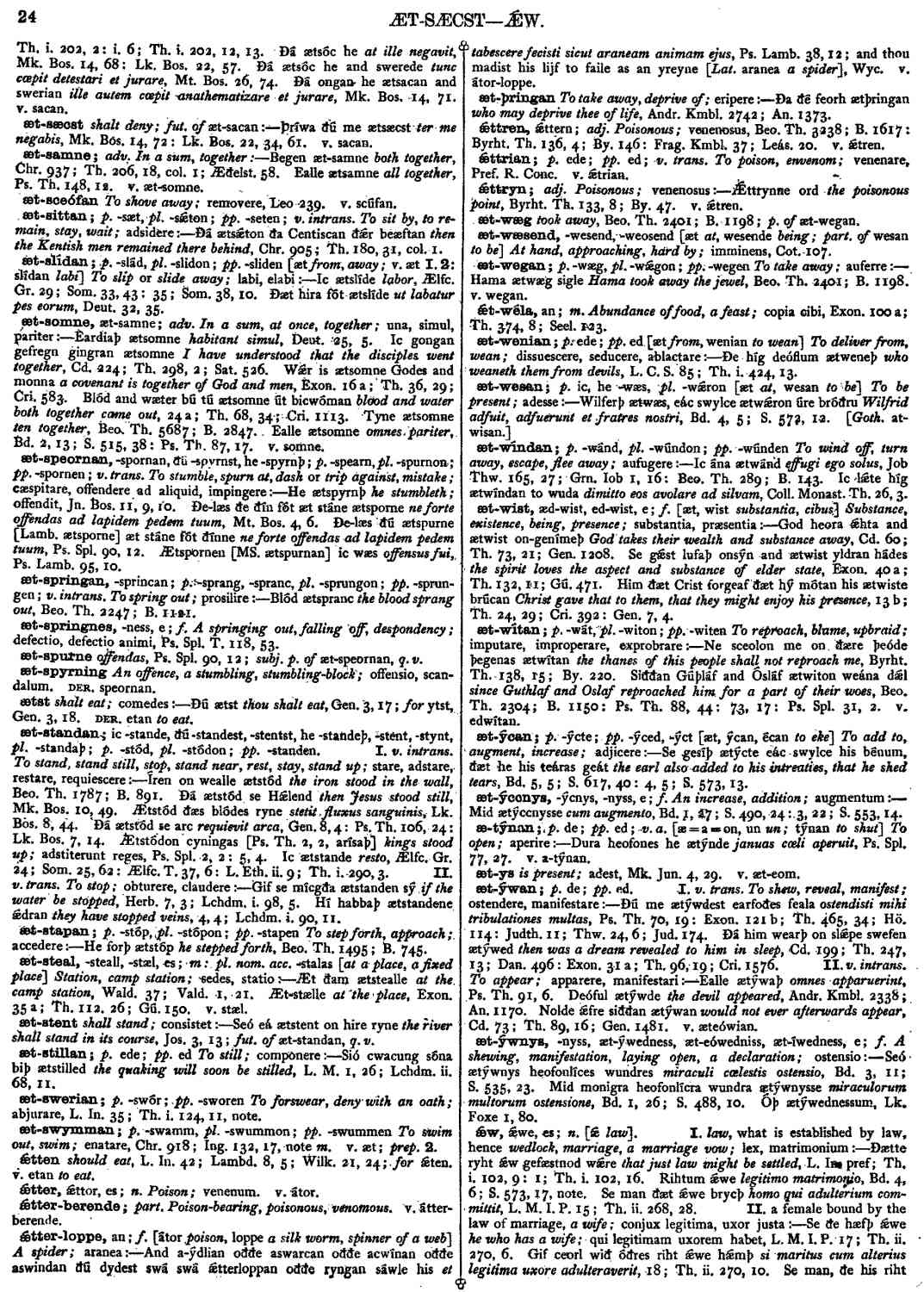æt-standan
- verb [ strong ]
-
Íran on wealle ætstód
the iron stoord in the wall,
- Beo. Th. 1787 ;
- B. 891 .
-
Ðá ætstód se Hǽlend
then Jesus stood still,
- Mk. Bos. 10, 49 .
-
Ætstód ðæs blódes ryne
stetit fluxus sanguinis,
- Lk. Bos. 8, 44 .
-
Ðá ætstód se arc
requievit arca,
- Gen. 8, 4 :
- Ps. Th. 106, 24 :
- Lk. Bos. 7, 14 .
-
Ætstódon cyningas [Ps. Th. 2, 2, arísaþ]
kings stood up;
adstiterunt reges
,- Ps. Spl. 2, 2: 5, 4 .
-
Ic ætstande
resto,
- Ælfc. Gr. 24; Som. 25, 62 ;
- Ælfc. T. 37, 6 :
- L. Eth. ii. 9 ;
- Th. i. 290, 3 .
-
Gif se mícða ætstanden sý
if the water be stopped,
- Herb. 7, 3; Lchdm, i. 98, 5 .
-
Hí habbaþ ætstandene ǽdran
they have stopped veins,
- 4, 4; Lchdm, i. 90, 11 .
Bosworth, Joseph. “æt-standan.” In An Anglo-Saxon Dictionary Online, edited by Thomas Northcote Toller, Christ Sean, and Ondřej Tichy. Prague: Faculty of Arts, Charles University, 2014. https://bosworthtoller.com/1008.
Checked: 1